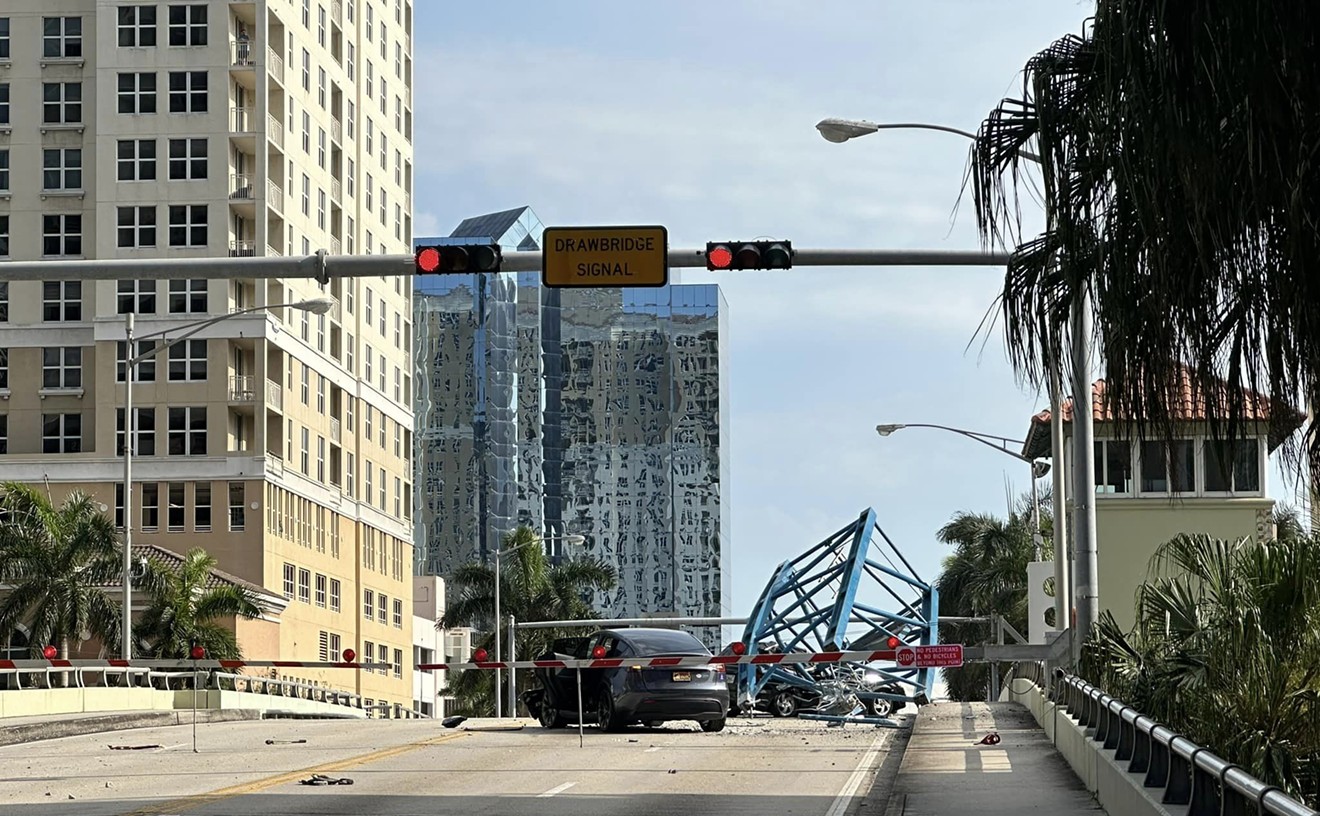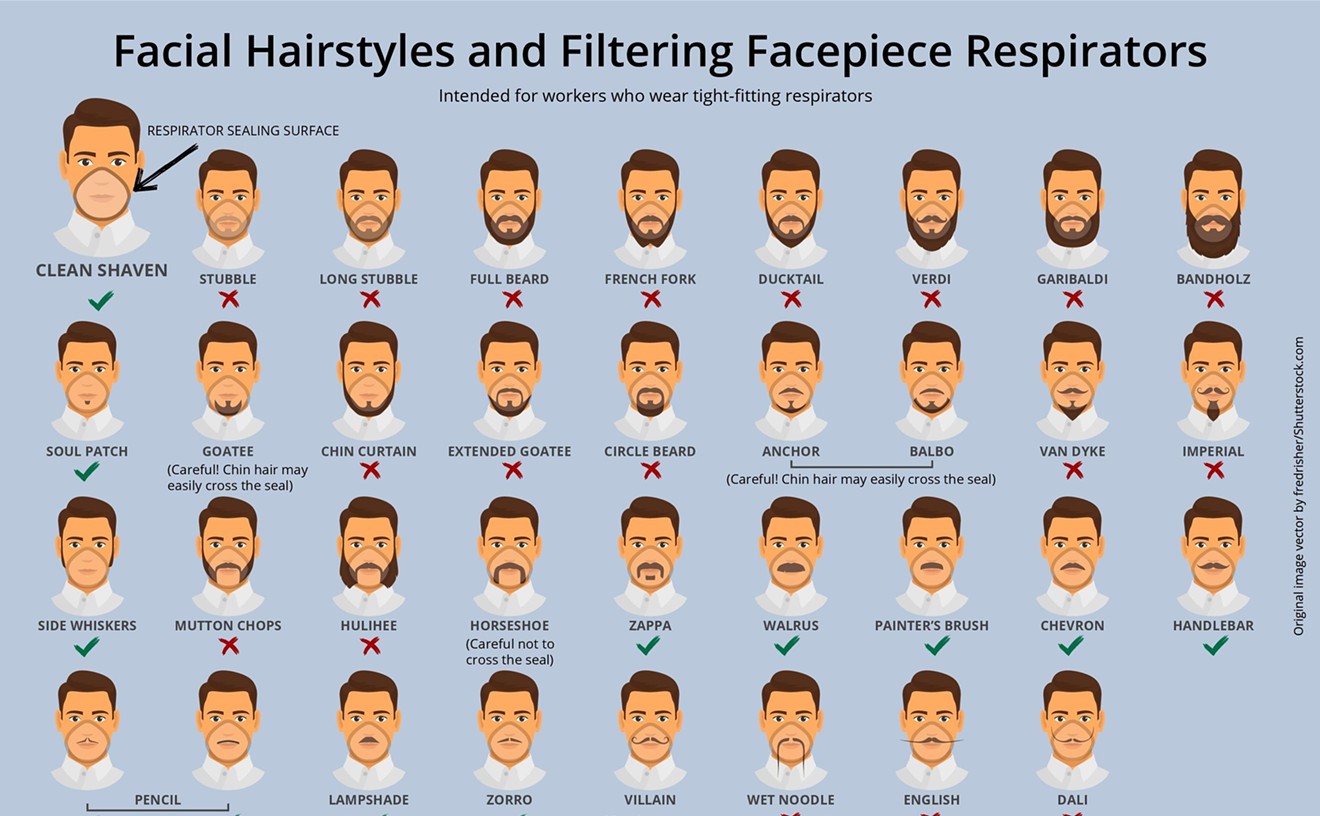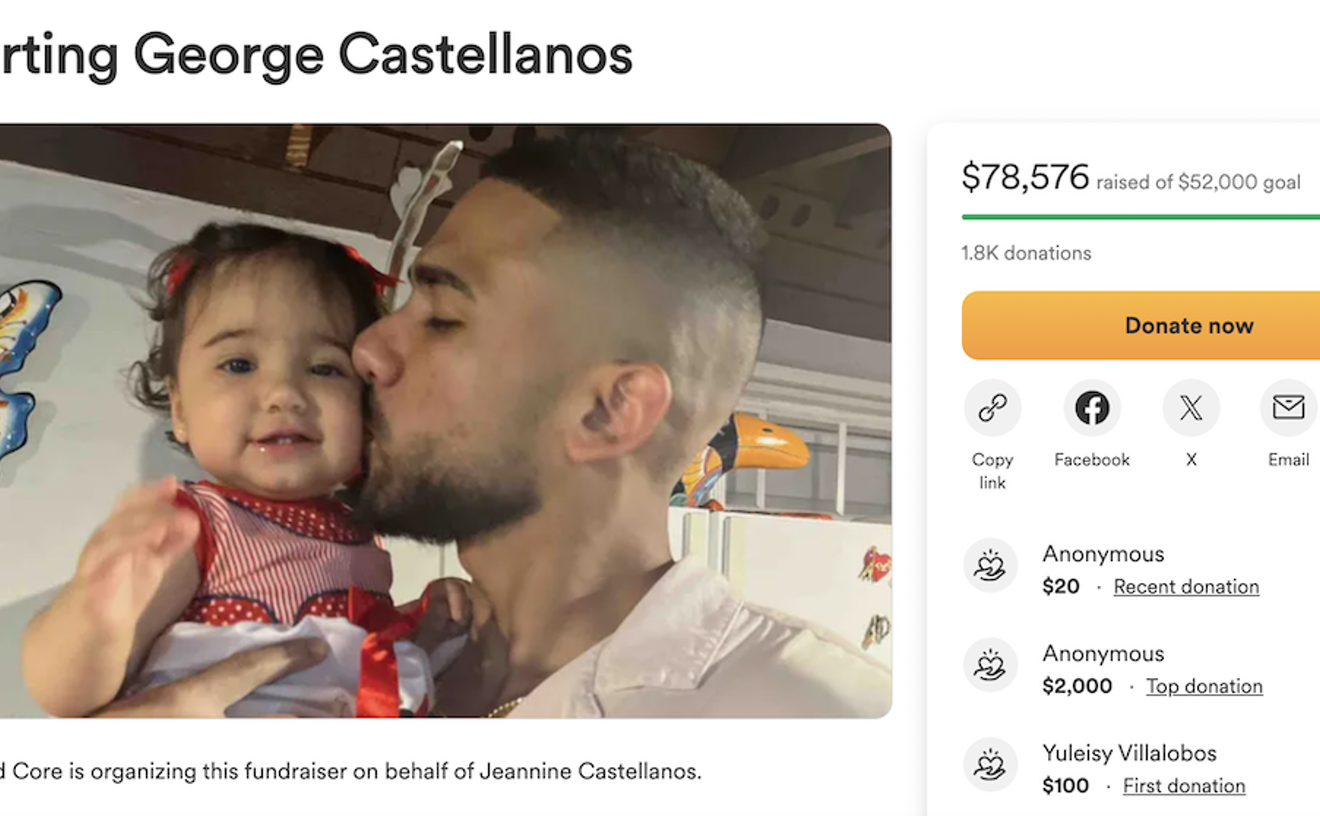A few blocks from the ocean on Miami Beach, Robert Roark pops the trunk of a weather-worn station wagon where he's been sleeping for a week. "I don't need a motel," he says. "My last $20,000 is going to a lawyer."
Everything the California builder needs fits in his car: There are coolers of food, a duffel bag of clothes — and most importantly — the documents he's been toiling over for the past two years. But this isn't the life he's used to living.
Roark, age 63, has lines around his eyes from decades of smiling and skiing. A couple years ago, Miami real estate hotshots fed him shrimp hors d'oeuvres and bottles of Chateau Margot while convincing him to invest in a luxury condominium project at the storied Seville Hotel in Miami Beach.
The plan has since been canceled, but after "innumerable calls and emails" to the wealthy South Florida family-owned company that hatched the plan, Roark still hasn't seen the $100,000 he deposited more than two years ago. So he drove cross-country to confront the executives he says jilted him.
"They are playing dirty pool," he says. "We've been extorted by these rich bastards who threaten to go bankrupt if we sue."
Roark isn't alone. The company — Miami-based Lionstone Development, owned by the prominent Lowenstein family — owes at least 13 other investors a total of hundreds of thousands of dollars.
Lionstone executive vice president Bruce Lazar declined to answer questions about six specific cases cited by New Times. Later, he sent this statement: "Over 92 percent [of the 187 purchasers] have received their deposits and have resolved their issues." He would not comment on why some buyers have received refunds, while others haven't.
The Seville Hotel, including Roark's would-be swanky unit, is one of dozens of resorts, hotels, homes, and casinos across South America and the Caribbean owned by 41-year-old Diego Lowenstein and his father, Alfredo, considered the Conrad Hilton of the Miami hospitality world. They include The Ritz-Carlton South Beach, Epic Residences and Hotel, and Bushiri Beach Resort in Aruba. (The matriarch of the family, who owns Diana Lowenstein Fine Arts Gallery in the Design District, furnished the hotels with highbrow art.)
The Lowenstein family business began in Argentina in the 1930s. A close-knit bunch, they made a small fortune exporting cow and horse meat, and then began buying property in South Florida in the late 1960s. Alfredo and his father, Luis, soon purchased waterfront real estate across Miami-Dade — including the DiLido Hotel and Dupont Plaza — with plans to remodel. In the 1970s, the family bought a cheery peach-colored structure on Collins Avenue and 29th Street called the Seville Hotel.
Diego Lowenstein, who is the company's CEO, joined the clan in South Florida in 1999, and by 2003 he and his father had converted the old DiLido Hotel into The Ritz-Carlton. The following year, the Miami Herald wrote a puff piece about how the charming family had "quietly" become a real estate "empire."
Then in late 2005 — at the peak of the housing boom — the firm announced ambitious plans to convert the half-century-old Seville Hotel. Once a venue for boxing bouts, pageants, and a supper club called The Matador, the beachside joint was a hangout for actors and athletes, including Jackie Gleason and Evander Holyfield. It was also a rumored meeting point for mobsters, and local newspapers routinely reported everything from stolen suitcases full of cash to raided rooms.
The Lowensteins would turn what had become a two-star budget hotel into a three-tower, 138-unit luxury condominium complex called The Ritz-Carlton Club. Lionstone planned to demolish part of the historic structure and build a 21-story tower with units starting at $900,000.
A thick, glossy brochure of the Ritz-to-be shows pictures of pretty girls lounging next to the ocean with palm trees in the background. It notes the Lowensteins' "30-year record" of success.
The following year, Ritz-Carlton representatives sent out 800 invitations for a swank party at the old hotel, which was being readied for renovation. They went to potential buyers and the South Beach elite. Chefs served caviar, champagne, and fresh garlic scallops inside actual seashells. For dessert, there were chocolate delights on "an I Love Lucy-style conveyer belt," gushed the business website bizbash.com.
Roark says he heard about the investment opportunity through an online membership club called VIP Roundtable. In June 2007, real estate agents flew him to a fancy hotel in Miami Beach and explained that Jennifer Lopez and Paula Abdul had already signed on for $4 million penthouses. He and other investors were then given yellow hard hats and shuttled by limousine to the source of their future fortune.
Inside, floors were torn out, but there were pillars made of glittering golden tile. He remembers: "They touted it as a sure thing, an easy way to make a million bucks." Eventually a total of 187 buyers — including lawyers, businessmen, and cops — had pooled their money for down payments on the timeshares.
Roark and three other buyers put down some $400,000 for fractional ownership on unit number 1103. The contract, dated July 20, 2007, notes the space would come furnished and be delivered in "designer-ready condition."
Then, in December 2008, Lionstone announced the project had been cancelled. No bank lender was willing to finance the $200 million construction bill, Diego Lowenstein told reporters.
"There's no debt for development," added Lowenstein, who serves on the board of directors for the Greater Miami Convention and Visitors Bureau and has 16 businesses registered to his name in Florida. "Lenders across the board are not doing anything."
Attorneys sent letters to the buyers informing them the project was dead.
One of the investors was George Small, a retired college professor and ordained minister who lost about $100,000. "They scammed us like Bernie Madoff," he says.
Stan Shawl, 73, says: "It wiped out my retirement fund. The whole thing has been a disaster."
And Fred Fernandez, a 48-year-old enforcement officer, concludes, "These people are a bunch of crooks."
Roark was hit the hardest of all. Between the cancelled project and the stock market drop, he lost nearly all his savings. So after trying to level with executives, he flew to Miami last April and drove to the Lionstone offices on Lincoln Road to confront Diego. An assistant answered the door and told him Diego wasn't available. Roark flew home feeling defeated.
Then, two weeks ago, Roark tried again. He got into his 1990 Subaru and drove straight from Northern California to Miami, stopping along the way to recruit other investors he had tracked down on the Internet. Nobody joined him.
Reached by phone at the family's $2.5 million waterfront home in Coral Gables, Diego's wife Sara explained her husband was "traveling" and would be difficult to reach. She added that all the money in question had already been refunded. "Just so you know, we do things right," she said before hanging up on New Times.
On a recent Tuesday afternoon, the Seville Hotel is completely empty. Roark stands outside, pointing up at the building — to where unit 1103, with a partial ocean view, would have been. "There's my condo," he says with an ironic smirk.
His plan is to camp out across from the hotel until somebody from Lionstone agrees to meet with him. Shaking his head with frustration, he sums things up. "I lost almost all my money...and now they won't even talk to me."











